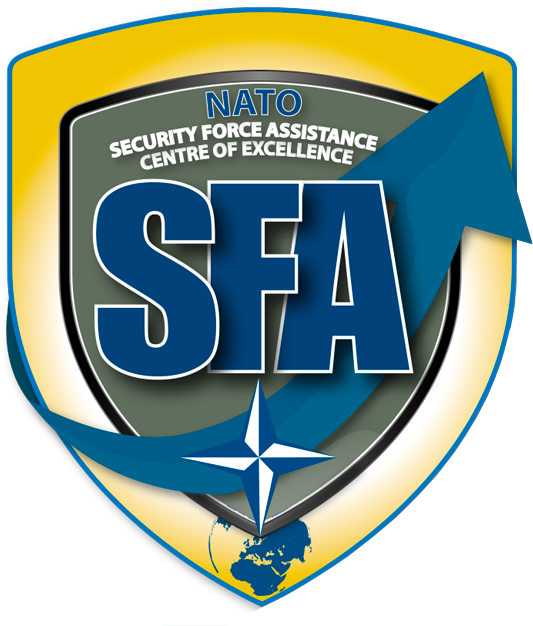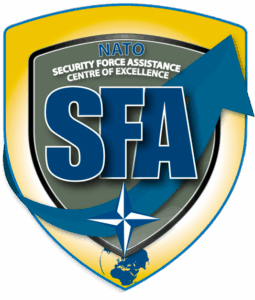The radical change of the international context during these years and the increasingly frequent rift between economic, social and geographic powers, has led to important changes in military capabilities, structures and doctrines.
The concept of Security Force Assistance (SFA) has seen a strong evolution in recent times, becoming gradually the reference approach in the conduct of Stabilization and Reconstruction Operations and in the Security Sector Reform, Civilian Activities Lead, and in which the Military component represents one of the main actors. These operations, that are part of the broader Nation Building and Defence Capacity Building initiatives, are aimed at conflict prevention and to solve the regional crisis, requiring strong cooperation as well as synergy between all the actors working on the field.
In this context, Security Force Assistance activities provides “military assistance” to Local Security Forces in order to create, develop and maintain sustainable capabilities to create legitimacy to the institutions. These are tools used to maintain security without any subsequent international intervention.
Such actions do not represent only the delivery of training activities, but are, in general, a deep and articulated process in order to transfer the responsibilities.
Within the UN/NATO/UE mandates, coalition and bilateral agreements, the ITA Armed Forces has participated in SFA activities in support of North and Sub-Saharan Africa, Middle East and Asia area of operations and the experiences gained so far has proved that the effectiveness of each mission depends on the ability to employ the trained and culturally prepared personnel.
In line with the NATO Strategic Concept (Lisbon 2010), the Italian Chief of Defence offered the National Centre as NATO SFA COE to Allied Command for Transformation (ACT ), in September 2016 in order to use it as a tool for the defence capability building and to develop the NATO capacity to fill the SFA gap.
The Security Force Assistance (SFA ) Concept is included in broader strategies such as Defence and related Security Capacity Building (DCB) Initiative, which was launched during the Wales Summit in 2014. It enhances the Alliance’s role in projecting stability by supporting related activities as part of a 360 degree approach, in accordance with the Warsaw Summit, and SFA contributes to a comprehensive approach.
The SFA Concept has been clearly recognized and acknowledged by NATO. The definition of SFA in the related Doctrine has been established as “all NATO activities that develop and improve or directly support the development of local forces and their associated institution”. Therefore, SFA encompasses all activities aimed at training and developing local forces.
SFA, although having a military focus, needs to be conducted in a comprehensive context observing all the imperatives that are essential to fulfil the mandate (e.g. political primacy, legitimacy, understanding) SFA includes all NATO activities that develop and improve, or directly support, the development of non-NATO local forces, excluding indigenous police and their associated institutions in crisis zones. The inclusion of SFA assets in the overall security plan not only allows Joint Forces to concentrate on deterring spoiling behaviour, but also builds the confidence of the local population. The responsibility for national security will be transferred to the Governmental organizations and leadership as soon as possible, even if SFA assets continue to support the development of the Security Sector Reform process.
The Centre is a multinational entity with Albania and Slovenia as Sponsoring Nations and Italy as Framework nation. The project started in 2016, following the Italian’s Government proposal to the Alliance, for the creation of a SFA COE focused on research, doctrine development and training, with the aim to promote stability and re-construction efforts for any crisis scenarios and to become a SFA focal point for the Alliance. One of the main goals of the NATO SFA COE is to improve cooperation and interoperability, ensuring a joint approach in achieving its objectives and, to support the Alliance in shaping the new strategies in this complex security environment.
The Centre was formally created on the 13th of December 2017 with the MOU signature between the Sponsoring nations and Allied Command Transformation and officially obtained the NATO accreditation from the North Atlantic Council on the 3rd of December 2018.
On the 26th of March, Albania, Italy and Slovenia celebrated with the Opening Ceremony the important final step that officially entered the SFA COE among the NATO COEs community.
From the 1st of December 2022, Austria has become a Contributing Participant.
The NATO Security Force Assistance Centre of Excellence will support cooperation and interoperability by providing a hub of expertise for the benefit of the Alliance, NATO Nations and NATO partners, thus ensuring a coherent joint approach based on contributions from all participants.


